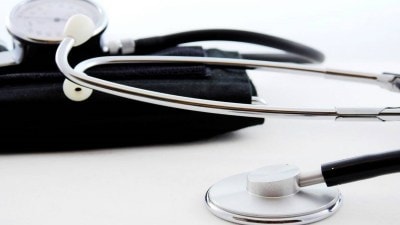Stay updated with the latest - Click here to follow us on Instagram
Annual medical examination- Health report card: 60 pc students in Anganwadi, govt schools fail test
A total of 53,887 students examined; most affected by dental and skin problems.
NEARLY 60 per cent students in government schools in Panchkula district have failed the health test. The annual medical examination of Anganwadi children and students in government schools has found that 59.81 per cent have one or another health problem, and most of them have dental or skin diseases.
Among the children with sub-par health are also counted those with birth defects, deficiencies, developmental delay and disabilities.
The medical examination is done under the Rashtirya Bal Sansthan Karyakram (RBSK), a government scheme that is aimed at early diagnosis and intervention. Under the scheme, children up to the age of 18 years get free medical treatment through District Early Intervention Centres (DEIC).
Out of a total of 53,887 students examined across government schools in the district, including Raipur Rani, Barwala, Morni and Pinjore from April-December last year, 23,941 (44.42 %) were diagnosed with diseases, primarily relating to dental and skin problems. As many as 4,188 (7.77%) with developmental delay and disabilities, in which vision impairment was most common; 4,057 (7.52 %) with nutritional deficiencies and 47 students were diagnosed with birth defects.
“Both skin and dental diseases are result of unhygienic conditions, arising out of a lack of healthy habits, like brushing teeth daily, washing hands with soaps, using clean water. We also found that many children had breathing problems, cough, cold, which are result of low immunity levels,” said Dr V K Bansal, Civil Surgeon.
Asserting that vision impairment in children was due to developmental delays, he said that pregnant mothers need to take adequate nutrition, proper diet, and
use hygienic practices, so that such disabilities do not occur in children. As many as 7.52 per cent students were diagnosed with nutritional deficiencies, and the majority of them had deficiency of Vitamin A and Vitamin D.
Sample this: Out of 4,855 students examined in December, as many as 2,949 were diagnosed with dental problems, 619 with skin diseases, 514 with vision impairment due to development delay, 372 with deficiencies of Vitamin D and 111 with deficiencies of Vitamin A and 45 with severe anaemia. A total of three children were diagnosed with congenital heart diseases in December.
While the first level screening is done in Anganwadi centres for children up to 6 years of age, the second level is done in government schools. A total of 19,819 children in the age group of 0.1-6 years were screened in Anganwadi centres, out of which 5,316 were diagnosed with diseases, mainly dental conditions and respiratory problems, 1,192 with deficiencies, 851 with developmental delay and disabilities, and 90 with birth defects.
A medical team consisting of two AYUSH doctors, including a female doctor and auxiliary nurse midwife and a pharmacist visits government schools during an academic session for the medical examination, and free medical treatment is provided.
“A total of 124 children were referred to PGIMER, Chandigarh, and super-specialty hospitals for specialised treatment, out of which 73 have already undergone treatment, with funds worth Rs 45.28 lakh which were sanctioned through District Early Intervention Centre,” said Dr Bansal.







